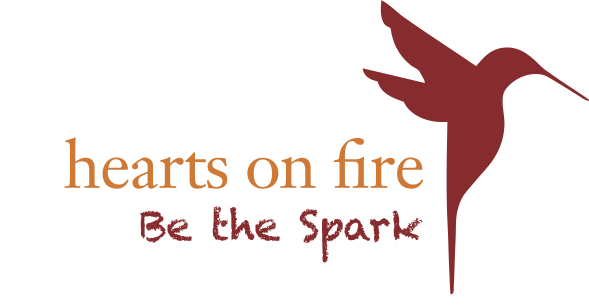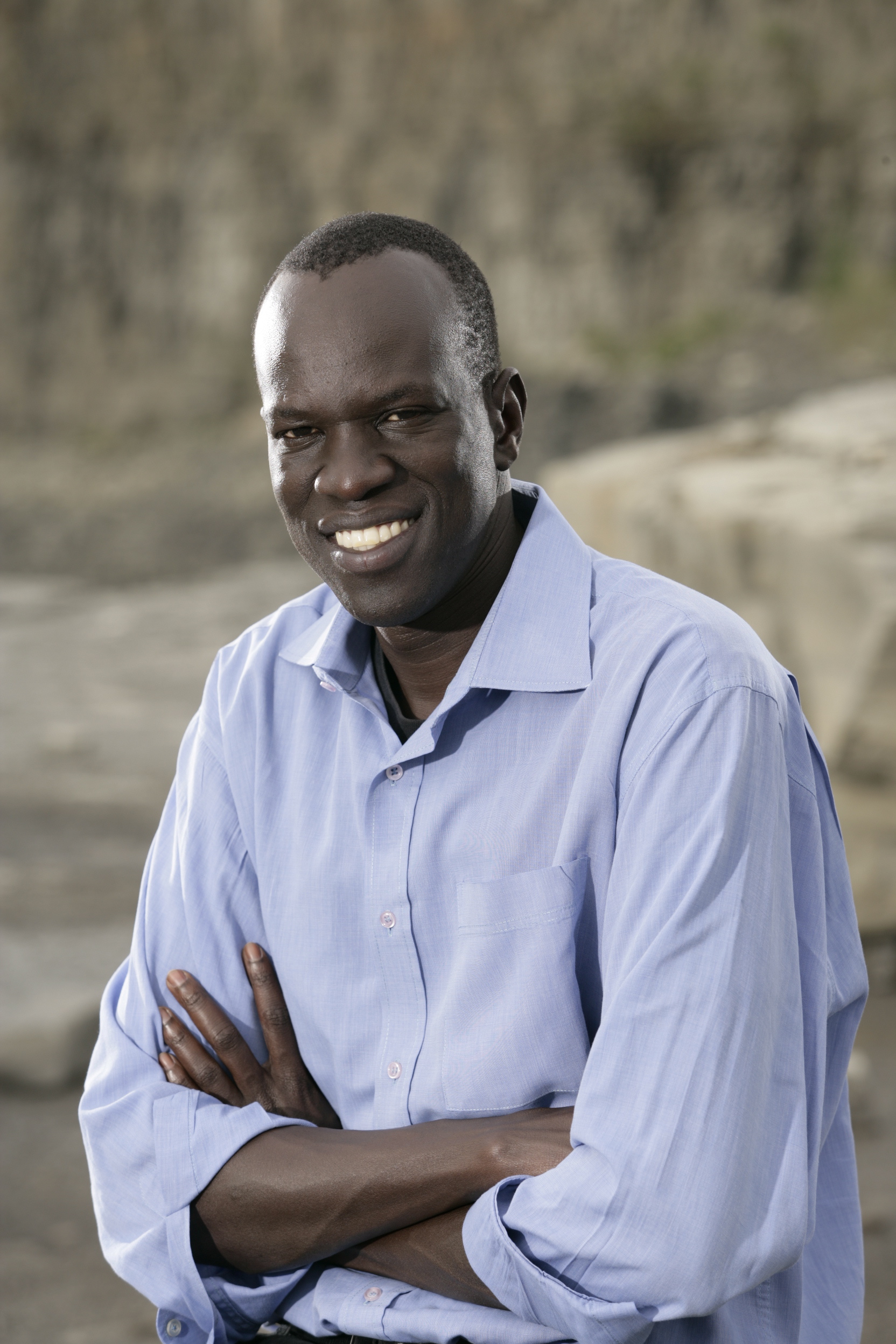Salva Dut | Water for South Sudan
Salva Dut
Once He Was Lost
If you are searching for a mantra to propel you toward your goals, Salva Dut has two simple words to offer: Keep Walking. Doing just that opened unexpected and life-changing possibilities for Salva beginning in his childhood.
Salva was born into the Dinka Tribe in a rural village in southwestern Sudan.
“As a boy my life was simple, tending cows, sheep, and doing a little hunting as well. My sisters were busy collecting water for my family.”
But, at age 11, Civil War forced him to flee on foot when his village was attacked by soldiers and death had reached his doorstep.
“Our enemy was targeting boys because our enemies thought if the boys grow up someday they will become soldiers and fight.”
Along with 20-thousand other boys who became famous as “The Lost Boys of Sudan, Salva walked, first, to a refugee camp in Ethiopia. Four years later, as a teenager, he led 1500 of the boys on an 800-mile trek through the Southern Sudan desert to another refugee camp in Kenya.
“We walked thousands of miles across 3 countries, through the desert in extreme temperatures of over 100 degrees with no water or food sometimes, avoiding crocodiles in the rivers, avoiding lions in the savannah, avoiding soldiers when we were in the open.”
By the time they reached the Kakuma camp in Kenya, 500 of the boys had died. For six more years, Salva lived behind barbed wire with nearly 100,000 other war refugees. Then, in 1996, when he was 21, he got the news that would change his future. Salva, along with nearly 4,000 of the Lost Boys, would be brought to America under the auspices of the US State Department. It was a journey of 10-thousand miles into a promising but confusing new life.
“There was culture shock from the food and the weather and the language. I had never experienced that culture in my life. I had to be patient and adjust to that culture to learn how to take care of myself.”
Fortunately, Salva was embraced by a warm and welcoming family in Rochester, New York.
“I missed my family but they brought me in as a family member accepting me fully. Before, I was by myself, just living with boys, so we didn’t have a role model with a husband and a wife who take care of their children. I learned a lot from them and how to fit easily into the culture. It helped me a lot.”
Salva and Moore family
But five years after arriving in America, Salva received troubling news from a fellow refugee that would put him on the road again, not walking, but flying 10-thousand miles back to Sudan, where the civil war was still raging. What he saw there would chart his course for years to come.
In January, 2002, Salva Dut arrived in Sudan to seek out a man he hadn’t seen for 16 years—his father. All that time, Salva thought his father had died in the war. Their reunion, he says, was emotional and wonderful. But his father was seriously ill, suffering from water-borne parasites and disease. Like so many rural villages, there was no clean water in his father’s village. Salva stayed by his father’s side until he recovered and could move to an area far away where clean water was available. But the harsh realities of life for the people of Sudan who had no access to clean, fresh water, profoundly affected Salva.
Salva describing the well drilling process to villagers
“I said I have to do something to help my people and my country. Even though I love my new country and my new family, I have to come back.”
In 2003, determined to make a difference for the people of his birthplace, Salva joined with a small group of friends to found Water for South Sudan (WFSS) with a mission to raise funds to drill wells in his homeland. The first well was drilled in 2005 in Salva’s father’s village.
“It took me years to collect the $50,000 to go back and drill a well. I could see immediately the power of the water, what water does in our life.”
Salva talking to villagers who will be receiving a new well from WFSS
Salva says the well alleviated some of the hardships of daily life in South Sudan, especially for women and girls who had to walk for hours each day to fetch enough water to survive. But it’s not just having clean water alone. Salva says there are other aspects that evolve around accessible water.
“Women are the economic engine of Africa. Now they have extra time to cook healthy food at home and earn money for their families. Schools are built around the wells and, now, girls have the opportunity to go to school. There is stability in the village and peace for the next generation that will someday change their world. For WFSS to plant that seed is really, really wonderful.”
Since drilling that first well, WFSS has opened more than 300 wells, affecting nearly half a million people. Villagers are taught how to maintain their well, where to obtain supplies if it breaks down, and given hygiene education. Salva says the idea is to give the community the tools to take care of itself.
In 2011, the Southern Sudanese people voted to secede from the Republic of Sudan and the new Republic of South Sudan was born. Salva moved back to his homeland to oversee WFSS operations in Africa.
Salva's home
“Africa has a lot of problems with extreme poverty, people struggling with medical care, starvation, lack of schools.
I am making sure I get involved and fight for social change so each individual has access to basic needs. If we don’t do that this world will never be peaceful.”
Salva is also collaborating with a member of the Nuer Tribe, traditional enemies of the Dinkas, on a United Peace and Development Project, drilling wells together to try to end the cycle of intertribal revenge.
“My uncle was killed by the Nuer tribe. But we go to tribal areas together to show we are brothers and sisters and we don’t need to fight each other. If I kill to revenge my people, they will do the same to me. Together we can make a difference.”
Salva says he’s still walking, not literally, but figuratively, moving forward with his vision of changing the world, one step at a time.
“Having hope, faith and perseverance you can accomplish anything in your life. No matter how difficult things are, keep walking; you will find others who will join you in your walk. And when you fall down, please remember me and keep walking and you will get there.”
Salva with Simon, a new friend at Daniel Bagley Elementary School, the winner of the 2016 Iron Giraffe Challenge in Seattle June 2016
Salva has earned numerous awards for his work with WFSS, including Rotary International’s highest award, “Service Above Self,” in 2011. He is also a member of the Monroe Community College Alumni Hall of Fame.
Watch
Take Action
Have your school or organization sponsor a well and it will bear your name! And read the full story of Salva Dut’s life, available in books for both adults and children, along with a curriculum guide for teachers at www.waterforsouthsudan.org







